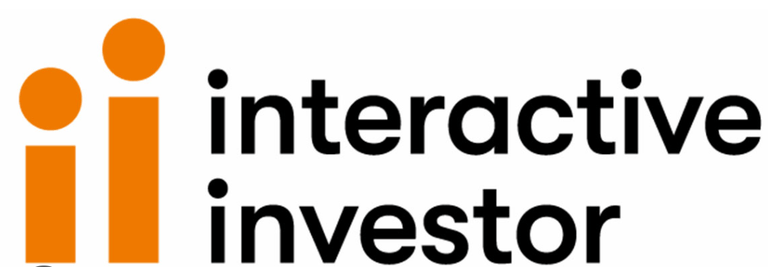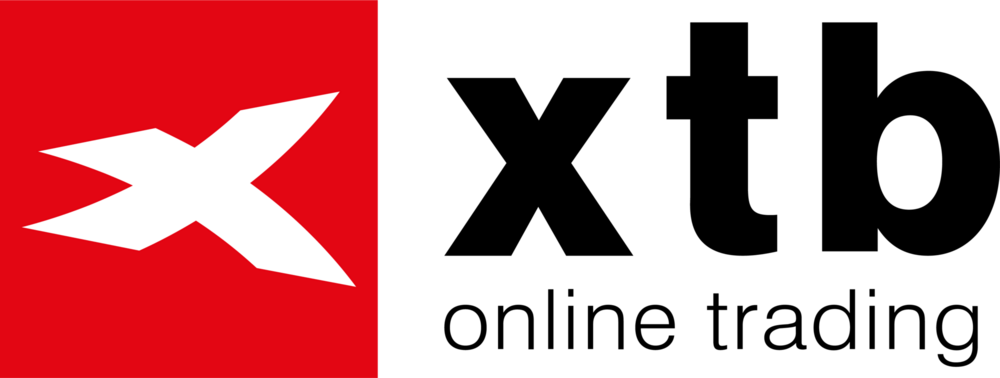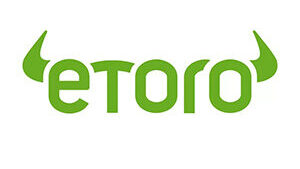Investing
Best Trading Platforms for Beginners UK

Getting started in the financial markets can feel overwhelming, especially with all the charts, technical features, and complex analysis tools. But the good news is that there are trading platforms designed specifically for beginners, offering a user-friendly and intuitive experience for all skill levels.
In this article, we’ll explore everything you need to know about beginner-friendly trading—including the best platforms to get started with and what to look for when choosing one.
What are the best trading platforms for beginners
If you're looking to start investing your savings online, it's important to choose a financial intermediary authorised and regulated by the Financial Conduct Authority (FCA). This ensures your investments are handled by a trustworthy broker that meets strict UK regulatory standards.
When starting out, it’s also helpful to select a platform that provides educational resources, an easy-to-use interface, and access to a wide range of financial products. The brokers highlighted below have been chosen based on their user-friendly features, diverse investment options, and support for beginners.
As you build your understanding of investing, take time to explore different asset classes and strategies to find what best fits your financial goals.
| Platform | Advantages | ||
| Interactive Investor | Ready-made portfolios, multi-asset platform, strong educational support. | ||
| XTB (xStation) | Macroeconomic news, trading on more than 7500 markets. | ||
| eToro | Social trading, multi-asset platform, demo account. |
| Platform | Advantages |
| Interactive Investor | Ready-made portfolios, multi-asset platform, strong educational support. |
| XTB (xStation) | Macroeconomic news, trading on more than 7500 markets. |
| eToro | Social trading, multi-asset platform, demo account. |
Interactive Investor
The Interactive Investor platform offers a clean and straightforward interface, designed with long-term investors in mind. While it may lack some of the fast-paced tools preferred by professional day traders, it excels in simplicity and usability—especially for those focused on building and managing portfolios over time.
With Interactive Investor, you can access a wide range of financial instruments: UK and international shares, over 3,000 funds, ETFs, investment trusts, bonds, and ready-made portfolios. This makes it a truly multi-asset platform, ideal for building diversified strategies.

Interactive Investor is also known for its flat-fee pricing, which can be highly cost-effective compared to percentage-based platforms—especially as your portfolio grows. Notably, it offers one free trade per month, depending on your plan, and no hidden charges or inactivity fees.
We include Interactive Investor among the best trading platforms in the UK because it’s a top choice for beginners and long-term investors looking for reliability, transparent pricing, and access to a broad set of investment options. When opening an account, you can choose between three service plans based on your trading needs: Investor Essentials, Investor, or Super Investor.
If you want to invest we recommend you read our Interactive Investor review.
XTB
This broker is authorised to trade by KNF, FCA and CySEC. Its platform, xStation, is considered one of the best commercial and professional platforms for trading.
It allows CFD trading on Forex, stocks, indices, commodities, ETFs, cryptocurrencies with a very user-friendly interface, which features advanced functions, analysis tools, market news, among others.

Furthermore, it should not be forgotten that the broker offers its customers a demo account of 100,000 XTB to test the broker's platforms and training programs.
Many experts recommend trading with XTB because it is ideal for private investors, beginners and professional investors. If you want to know more read: XTB review.
eToro
The eToro trading platform is best known for its copy trading feature, which allows you to automatically replicate the trades of experienced investors. Your returns will be proportional to the amount you invest. You can also choose to trade independently at any time.
eToro offers a simple, beginner-friendly interface and operates in a fully regulated environment. In the UK, it is authorised and regulated by the Financial Conduct Authority (FCA), and client funds are protected under the Financial Services Compensation Scheme (FSCS) up to £85,000.

In addition to being one of the most popular platforms for buying shares, eToro is also a leading choice for cryptocurrency trading, with access to over 60 digital assets. The eToroX wallet uses FIPS 140 encryption, one of the highest security standards recognised globally.
New users can also benefit from a free demo account, with $100,000 in virtual funds, allowing you to practise before using real money.
- Equities, ETFs, crypto both real and derivatives
- Social trading e copy trading
- User-friendly platform and demo account
61% of investor accounts lose money by trading CFDs with this provider.
If you want to know more, we’ve prepared a guide on how to trade with eToro, how copy trading works on one of the best copy trading platforms, and our complete eToro review.
The best trading platforms
In this article we wanted to describe the best trading platforms for investors who are taking their first steps. Despite this, we want to leave you the complete list of the best regulated trading platforms. In this table you see them all divided by levels: for beginners and professional platforms. However, in the article on the best online trading platforms we also describe the others in detail.
| Platform | Level | Advantages | |||
| FINECO (PowerDesk and FinecoX) | Advanced | Advanced features and completeness. | |||
| AvaTrade | Advanced | Platforms dedicated to options and futures. | |||
| IG | Beginner/Medium | Access to 17,000 global markets. | |||
| XTB (xStation) | Beginner/Medium | Macroeconomic news, trading on more than 7500 instruments. | |||
| IG (Proprietary, MetaTrader 4) | Advanced | Advanced trading tools, direct access to many markets. | |||
| ProRealTime | Advanced | Automatic trading, advanced charts, technical analysis tools. | |||
| Scalable Capital | Beginner/Medium | Free Broker plan without commissions. | |||
| eToro | Beginner/Medium | Social trading, multi-asset platform, demo account. | |||
| Interactive Brokers (TWS) | Advanced | Access to global markets, advanced and professional tools. | |||
| DEGIRO | Beginner/Medium | Low commissions, simple and intuitive platform. | |||
| Pepperstone (MT4-MT5-cTrader and TradingView) | Advanced | No minimum deposit. Demo account and excellent customer service. |
| Platform | Level | Advantages |
| FINECO (PowerDesk and FinecoX) | Advanced | Advanced features and completeness. |
| AvaTrade | Advanced | Platforms dedicated to options and futures. |
| IG | Beginner/Medium | Access to 17,000 global markets. |
| XTB (xStation) | Beginner/Medium | Macroeconomic news, trading on more than 7500 instruments. |
| IG (Proprietary, MetaTrader 4) | Advanced | Advanced trading tools, direct access to many markets. |
| ProRealTime | Advanced | Automatic trading, advanced charts, technical analysis tools. |
| Scalable Capital | Beginner/Medium | Free Broker plan without commissions. |
| eToro | Beginner/Medium | Social trading, multi-asset platform, demo account. |
| Interactive Brokers (TWS) | Advanced | Access to global markets, advanced and professional tools. |
| DEGIRO | Beginner/Medium | Low commissions, simple and intuitive platform. |
| Pepperstone (MT4-MT5-cTrader and TradingView) | Advanced | No minimum deposit. Demo account and excellent customer service. |
Characteristics of the best trading platform for beginners
If you’re just getting started, it’s important to choose a trading account that suits your level of experience. Here are some key features to look for when selecting a beginner-friendly trading platform:
- Ease of Use: While advanced features may appeal to seasoned traders, beginners are better off with a simple, intuitive interface. A clean layout and straightforward navigation can make all the difference when you’re starting out, helping you build confidence without feeling overwhelmed.
- Educational Resources: Combining practice with theory is essential in the early stages. It’s a good idea to choose a broker that provides training materials, tutorials, webinars, or beginner guides. And of course, at Rankia, we’re happy to help with free resources tailored to new investors!
- No Minimum Deposit Requirements: When you're starting out, your budget might be limited. Choosing a broker that doesn’t require a minimum deposit can be a smart move. That said, if you’re a beginner but already have funds ready to invest, this point may be less relevant to you.
- Robo-Advisors: If you’re not ready to pick investments yourself, consider trying a robo-advisor. These automated services offer a passive approach to investing, ideal for those who want to start with lower risk and minimal research. Just make sure to check the platform’s reliability and any associated fees before getting started.
Furthermore, various other aspects must absolutely be taken into consideration, such as:
- Fees: In all our guides and broker reviews, we take a close look at fees and charges. We recommend not only checking the cost itself but also how those fees are applied—and whether they suit your investment style. For example, if you plan to invest small amounts, it might be better to choose a broker with low trading fees or no minimum charges. On the other hand, if you're investing larger sums, a broker with tiered pricing or capped monthly fees could be more cost-effective. This is just one scenario, but the key takeaway is this: always read the fees section of our reviews and choose a broker that aligns with your financial goals and trading habits.
- Regulation and Security: All the brokers we review are regulated and secure. In the UK, brokers must be authorised by the Financial Conduct Authority (FCA). Some may also hold licences in other countries, particularly within the EU. In the event of broker insolvency, UK investors are typically covered by the Financial Services Compensation Scheme (FSCS), which protects up to £85,000 per person. Regardless, it’s essential to verify the broker's regulatory status and avoid using platforms that are not properly authorised.
- Customer Service: Most brokers offer some level of customer support—but quality varies significantly. Consider factors such as availability, response times, and whether support is offered in English and through your preferred channel (chat, email, phone). Good support can make a big difference, especially if you're new to trading or run into a problem with funding or orders.
- Tradable Assets: Whether you're a beginner or an experienced investor, make sure the broker actually offers the products you're interested in—be it UK shares, ETFs, bonds, forex, or crypto. There's no point signing up to a platform only to find it doesn’t support the assets you want to trade.
Learning to trade on your own: is it possible?
Absolutely—learning to trade on your own is entirely possible. It may feel challenging at first, but with perseverance and discipline, you can make solid progress in a relatively short time.
One of the benefits of trading is that there are no formal barriers to entry. You don’t need a degree or to pass any official exams. To become a self-taught trader, the key is to combine theoretical learning—through quality books and online trading courses—with practical experience.
The psychological aspect of trading is just as important as the technical side. It's one thing to practise with virtual money in a demo account, but it's another to handle the emotional pressure that comes with risking real capital. Developing the ability to stay calm during market downturns—rather than rushing to sell—is a skill that takes time to build.
If you're serious about learning to trade, you may also be curious about who the most successful traders are, and whether it’s realistically possible to make a living from trading.
How can I start trading?
Starting to trade is simple, you just need to:
- Select a safe and regulated broker
- Complete the registration process (you may be asked to send documents)
- Make a deposit
- Start trading
When you're new to trading, it's strongly recommended to begin with a demo account. Although the urge to start investing real money right away is understandable, it's not the best approach for beginners.
A demo account allows you to practise trading under real market conditions, but using virtual funds. This helps you get familiar with how the platform works, test different strategies, and gain confidence—without putting your own money at risk.
There are different types of demo accounts available. Some brokers may provide unlimited access and generous virtual balances, while others set time or usage limits. It’s also important to know that not every broker offers a demo account, so take time to check this before signing up.
Choosing a platform that supports demo trading can make a real difference when you’re just getting started, as it gives you the space to learn safely and gradually.
Looking for a trading platform for beginners?
MetaTrader is a popular trading platform that many brokers support:
👉🏼 Best brokers with MetaTrader
FAQs
Can you learn to trade by yourself?
It’s entirely possible to learn trading on your own, but it requires plenty of patience, consistent practice—ideally using a demo account on a beginner-friendly platform—and a solid foundation of theory. This can come from books, online courses, and free resources available on the web.
How to start trading by yourself?
A good place to start is by choosing a safe, FCA-regulated broker that offers a demo account—ideal for beginners looking to practise without risking real money.
How much time is needed to start trading?
The time required can vary, but it's recommended to approach learning with commitment—around 10 hours per week is a good starting point. The more time and effort you invest, the sooner you'll feel confident and ready to begin trading.
Disclaimer:
